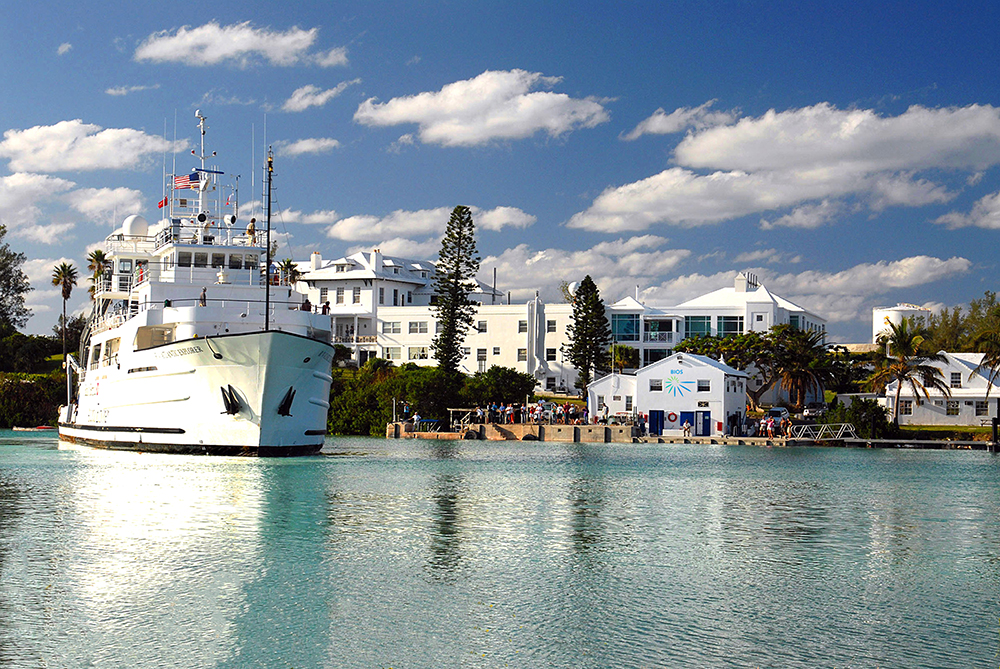Posts Tagged ‘Climate Change’
Monster Hurricanes Reached U.S. During Prehistoric Periods of Ocean Warming
Research on coastal sediments, funded in part by BIOS’s Risk Prediction Initiative, shows that prehistoric hurricanes along the northern East Coast of the United States were likely more frequent and intense than those that have hit within recorded history
Read MoreScientist at Work: A Conversation with BIOS Biologist Amy Maas
Biologist Amy Maas, who joined BIOS in January, discusses tiny but critical marine organisms under threat by shifting ocean temperatures
Read MoreBIOS Time Series Helps Scientists Confirm Ocean Acidification
In a unique collaboration researchers from around the globe have studied data from seven time-series and found that despite the varying geographic locations, each of the time-series sites exhibited similar changes in ocean chemistry due to anthropogenic CO2, confirming what many scientists have believed for years: ocean acidification is indeed changing ocean chemistry
Read MoreUnderstanding the Ocean of the Past Using Ocean Sediments
A study published in a recent issue of Nature Geoscience looks at the impacts of historic glacial events, called Heinrich events, on the Atlantic Meridional Overturning Circulation (AMOC) by investigating oxygen isotopes in the shells of benthic foraminifera
Read MoreScientists Improve Climate Predictions Using Tiny Marine Organisms
In a recent paper published in Geochimica et Cosmochimica Acta, a group of researchers led by T.M. Marchitto (University of Colorado, Boulder), and including BIOS Director Bill Curry, studied benthic foraminifera in order to develop improved calibrations between temperature and oxygen isotopes
Read MoreThe Bermuda Atlantic Time-series Study (BATS) Celebrates A Quarter Century of Science
By the end of its first decade, BATS supported 60 different research groups conducting time-series projects near Bermuda, with many scientists using BATS data to make fundamental discoveries about the cycling of trace metals and their relationship with ocean biology, the role of eddies in the cycling of nutrients, and the role of the ocean in the global carbon cycle
Read MoreNovel Use for a Familiar Instrument
Meg Estapa—Postdoc at WHOI—is repurposing common transmissometers as optical sediment traps to investigate particle and carbon flux in the ocean
Read MoreNational Science Foundation Commits $14 Million Dollars to Ongoing Research at BIOS
Amid growing concern regarding the current federal funding climate for ocean science research, the National Science Foundation (NSF) just announced continued support for the Bermuda Atlantic Time-series Study (BATS) research program at BIOS
Read MoreGeneva Association Issues New Report on Ocean Warming and its Implications for the Insurance Industry
by: The Geneva Association
The Risk Prediction Initiative at BIOS leads science behind new report from The Geneva Association on (re)insurance, risk, & climate change
Celebrating 35 Years of Particle Flux Measurements in the Sargasso Sea
This year, the Ocean Flux Program celebrates 35 years of continuous measurements, making it the longest running time-series of its kind
Read More









